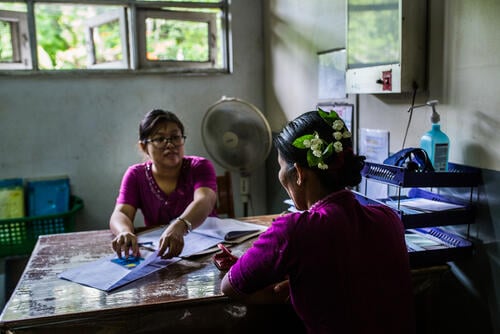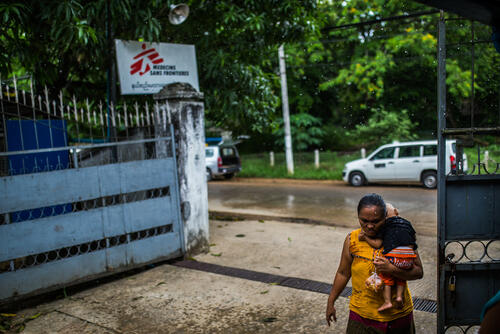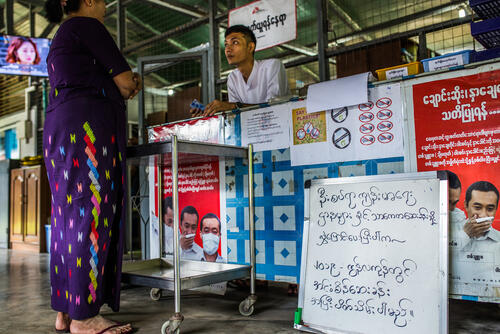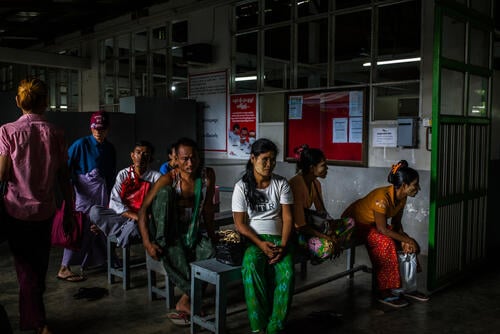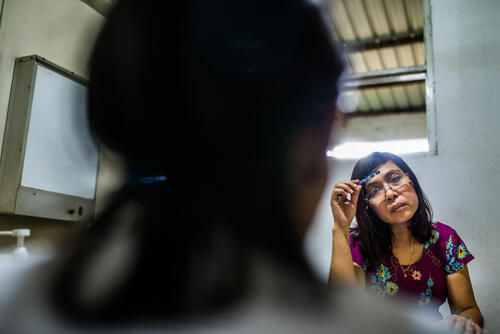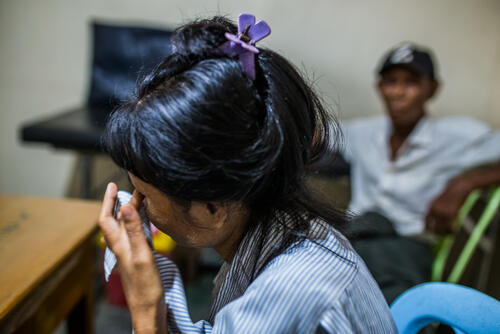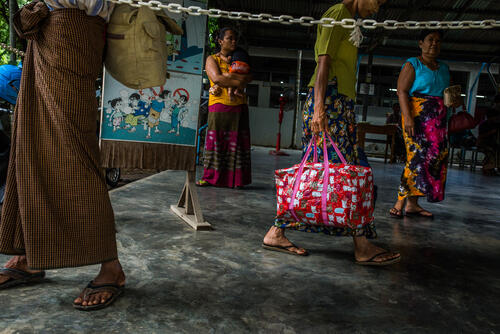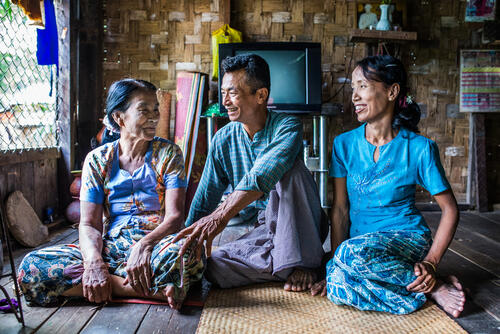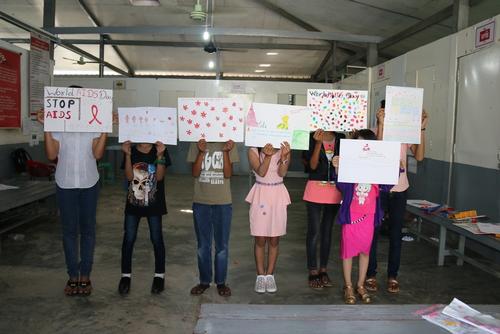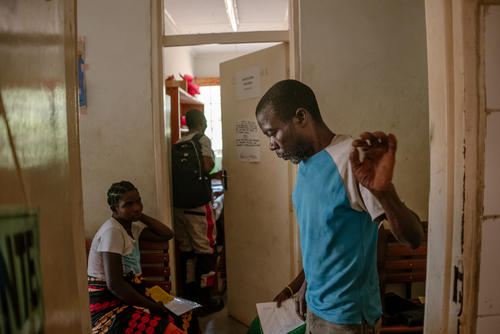As part of a nationwide strategy to transfer HIV patients to Myanmar’s National AIDS Programme (NAP), Médecins Sans Frontières (MSF) closed our HIV clinic in Insein, Yangon in late June.
The Insein clinic, which opened in 2014, was part of our larger Yangon project, which has been running since 2003. At its height, the project provided treatment to more than 17,000 people, many from outside Yangon. The closure represents a milestone both for MSF and for Myanmar, marking the country’s growing capacity to provide antiretroviral (ARV) treatment for people living with HIV.
MSF was the first provider of ARV treatment in Myanmar and for some time ran the largest HIV treatment programme in the country. In recent years, as the capacity of the NAP and National Tuberculosis Programme (NTP) has grown, we have transferred patients to the care of the Ministry of Health and Sports for treatment in clinics closer to their homes.
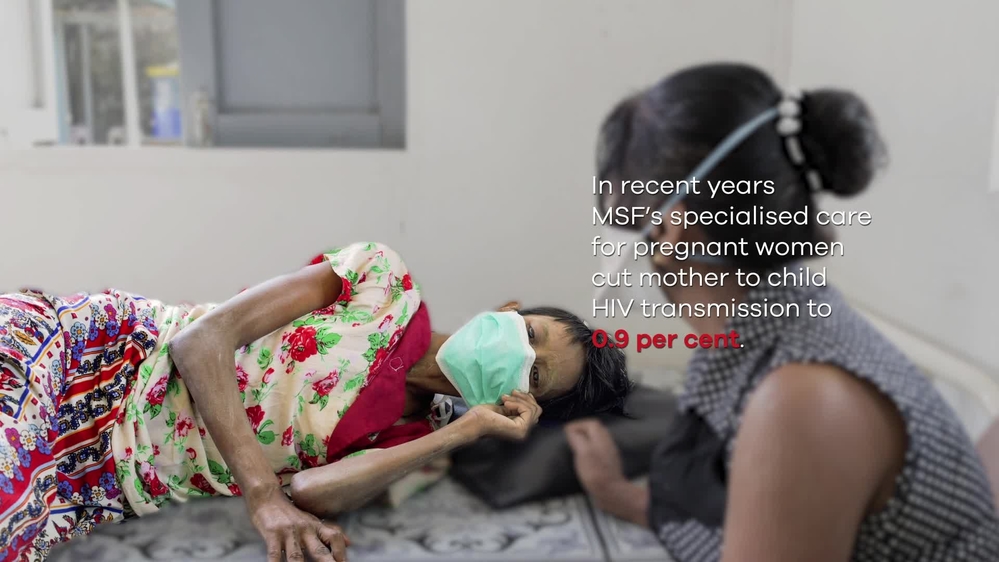
MSF closes Insein HIV clinic Yangon, Myanmar
Approaches to patient care in Insein
Ko Myo Kyaw had been a counsellor and educator at the Insein Clinic. Over some 15 years, he has accumulated significant experience in counselling people living with HIV. One of his priorities in counselling patients is making sure they adhere to their treatment, and his approach comprises patient motivation, social issues and behaviour. He explains what it was like to counsel people living with HIV in Myanmar during his work at Insein.
“There are various social and psychological factors that affect the treatment of HIV, and discrimination against people living with HIV in Myanmar is still prevalent. If a person has tuberculosis (TB), they can say so with confidence. But the same simply isn’t true with HIV – the stigma continues to be widespread and this can affect people’s adherence to their treatment.
Overcoming stigma and social challenges on HIV treatment
“People living with HIV need to take their antiretroviral medication every day; they might do this at home or at work or even at school. Due to a sense of shame or embarrassment, some patients choose to hide from others when they take their medication – this can result in irregular timings and affect their treatment.
“There are also other situations that make adherence to treatment difficult, for example, if a patient quarrels with their spouse, they might forget their medication or lose their motivation to continue with the treatment.
“It’s important to reduce these kinds of risks to treatment and to accomplish this, we have to understand our patients and the challenges that they face, so that we can help where possible. Counselling is essentially about being there to support our patients in their successful treatment.
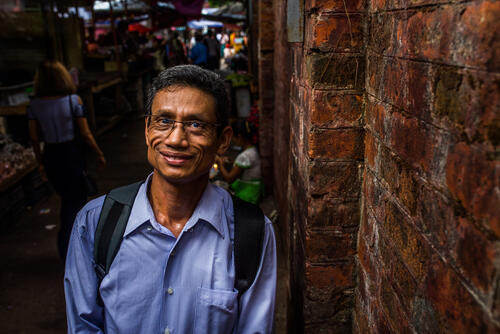
Three factors and three techniques in patient adherence
“I’ve been a counsellor and educator here for about 15 years, and in my experience, there are three main factors in working to promote a patient’s adherence to HIV treatment: motivation, social challenges and behaviour.
“In addressing these factors, we have three main techniques, the first is a ‘motivational interview’. This is a discussion, which helps us establish how to provide counselling for someone who may have lost their motivation to continue with treatment.
“Secondly we look at ‘problem solving’ – of course everyone faces day-to-day social challenges, but our goal is to see which social problems we can help alleviate so that the person can continue with their treatment and stay healthy.
“Sometimes we also adopt ‘behaviour change counselling’. We do this when someone displays harmful tendencies, such as binge drinking, drug use or unsafe sex – our objective in this is to help them adopt behaviour that benefits, rather than hinders, their treatment.
MSF has been piloting programmes since 2003
“Having spent time in this job has made me appreciate just how effective our counselling programme is. Before 2004, I didn’t know much about NGOs like MSF. I first learned about the counselling position through my neighbour, she was working here as a nurse, and when I asked her what a counsellor does, she explained that a counsellor needs to interact with patients.
“When MSF began ARV treatment programmes here in 2003, a lot of lives were saved. If they hadn’t done that, many more people would have died. I’m proud that I can be a part of MSF and contribute.
“Another reason I’m happy to work with MSF is the hepatitis C treatment that began in 2016. That programme began as a pilot in Yangon, led by the Insein clinic, and today we have patients who are completely cured of hepatitis C. I’m proud when I think of this, and my work as a counsellor makes me proud too.
“Now there are other NGOs that are starting HIV programmes, and when they need counselling training, they invite MSF to share our experience. It makes me happy that I can share the knowledge and skills that I learned from my teachers and from my own experience.”



